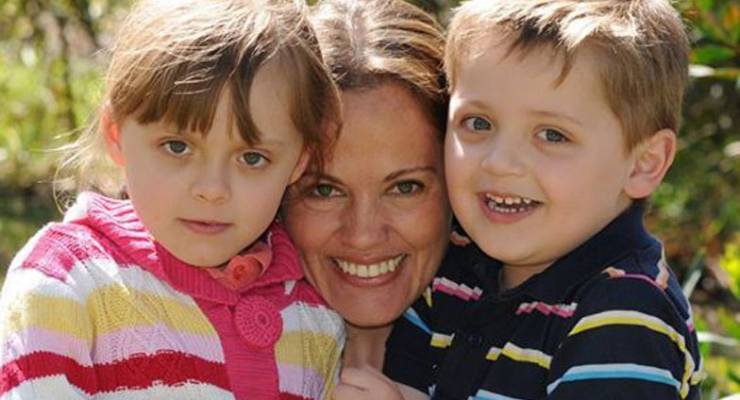
“I agree it’s a tragedy, but until you walk in their shoes, it’s very hard to be critical.”
Philip Nitschke was far from the only person to claim that we should not pass judgement on parents who choose to murder their disabled child or children. The murders of Martin and Elisa Manrique have been framed almost entirely around their autism and the pressure that it must have created for their parents. Tragic, of course, but entirely understandable.
This narrative is shifting as more information comes to light. Nitschke has retracted his claim that Fernando Manrique had obtained a copy of his how-to book on euthanasia, saying that he now believes it to have been another man with the same surname. And the initial assumption that the family were murdered by their mother has been almost entirely discounted after police revealed that Manrique had constructed an elaborate system of pipes to turn his family home into a gas chamber. Descriptions of Maria Lutz as “sad” based on the reports from neighbours who knew her only in passing have been replaced by eulogies from her friends and family describing her strength, her happy disposition, and above all her devotion to her children.
Police have not yet ruled out the possibility that Lutz endorsed her husband’s plans, but they are said to be “leaning away” from that scenario. Those early suggestions that Maria Lutz had murdered her family now seem to have been a monstrous slur on her name. However, the claim that pressure of raising a disabled child is sufficient justification for murder continues to circulate. Variations on the theme of “you can’t judge!” appear over and over again in the below-the-line comments. And yet we not only can, but must, judge crimes that are committed against disabled offspring by their parents.
If looking after Martin and Elisa Manrique was hard work, loving them seems to have been very easy. Tributes to them from their school community describe them as friendly, happy and affectionate. They were high-need, but also high-functioning, with Martin in particular described as a talented artist. In photographs, they look conventionally attractive, appealing and smiling. But even if this were not the case — even if they had lacked the muscle control to smile, even if they had been too withdrawn or too hostile to hold their teacher’s hand “in the sweetest way” as Elisa is remembered as having done, even if Martin had never picked up a paintbrush — nothing could justify their murders.
It is true that outsiders can never really know that kind of pressure that goes with the territory of raising a disabled child. The sleepless nights that come with caring for a young child are enough to drive any parent to the brink of madness, and Maria Lutz is said to have suffered many such nights. However, this does not make the act of killing such children any less monstrous. And although the family’s life was dominated by the needs arising from the children’s autism, we do not yet know whether it played any role at all in their deaths. Fernando Manrique may turn out to be yet another common-or-garden-type homicidal male who killed his entire family rather than let them slip from his control.
The death of the Manrique children comes at a time when the legalisation of euthanasia has become a high-profile issue, with legislation under consideration in South Australia and likely to be tabled in Victoria in the near future. Most euthanasia advocates would regard Nitschke’s intervention in this case (and indeed Nitschke himself) as an embarrassment to their cause. The children seem to have had a high quality of life and would never have been capable of providing informed consent for euthanasia even if their capacity for enjoyment were to have deteriorated.
But even though they would not have been eligible candidates under the proposed legislation in South Australia, the response to their deaths has heightened the fears held by disabled advocates on the issue of euthanasia. When disabled children and adults alike are regarded as a soul-destroying burden to those who are supposed to love them the most, when killing them is regarded as a forgivable crime that is not to be judged by outsiders, it’s apparent that large numbers of people believe that the world would be better off if we were dead. And from there, it’s very easy to believe that we ourselves would be better off dead, too.








I disagree with the tagline of this piece: “Those who say they can “understand” why Fernando Manrique murdered his family are saying that people with disabilities would be better of [sic] dead. ”
They are making no comment at all about the woman and children who were murdered. All they are doing is acknowledging that there are circumstances – severe depression, frinstance – in which people’s thinking, motives, rationale are affected to the extent that they make decisions that have dire consequences for others.
They’re being phrased with a level of sympathy ~for the actions~ that domestic murders of physically abled kids never garner.
This is incontrovertible if you actually read threads about it. I have seen tens of people explicitly saying their deaths might be for the best, in contrast with your assumptions.
Agree. There’s certainly been a ‘ well you can understand’ theme running through commentary.
But it’s a really, really long way from that observation – the (equally incontrovertible) point that caring for physically disabled kids *can* be harder than caring for others – to concluding that those expressing the sentiment must believe that people with disabilities would be better off dead. In fact, it’s such a long way that it just smacks of clickbait.
He, and possibly they, killed their children. What’s not to judge?
I’m a fan of euthanasia, but this story has nothing to do with that, this is murder, assuming the reports to date have been accurate. (?)
A father with suicidal depression (most probably on account of having two autistic children) determines he can no longer go on living.
His choice – leave the family behind to the agonies of daily life without his exclusive Sydney north shore, executive-level financial support – or take them with him into the silent void by means of a carefully executed painless gas expiry?
I just bet you Shakira Hussein here claims to be a worthy feminist. You know, free choice. And actually, so do I. I firmly believe women own the right to not choose a life of hell for their offspring.
Well, Shakira, I reckon it’s the same for men. Think of it as a couple of post-facto abortions. It should help you get over the genuine tragedy involved.
Will’s comment is appalling. Of course it was murder suicide and not defensible on any ground that their lives were not worth living.
To what extent the murder was done by a person in full possession of a capacity for rational choice is unknowable and not worth speculating about.
Such speculation does not imply that disabled kids have lives not worth living but only wrongly presume that care for them can make carers feel that their lives are not worth living.
In any case, does anyone believe that involuntary euthanasia is acceptable, apart from Singers claim that it is cruel to sustain wholesale suffering? The only position that most debate today is that voluntary euthanasia is acceptable and the children’s murder has nothing to do with that